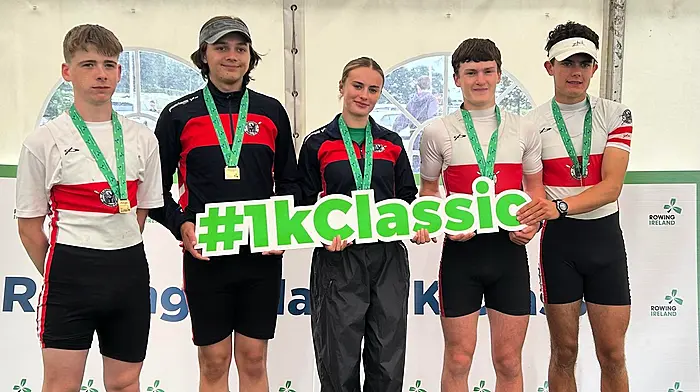The senior administrator of the Cork County Board, Diarmuid O'Donovan, has expressed concern at what he terms as ‘volunteer fatigue' with regard to the running of club and divisional teams.
BY DENIS HURLEY
THE senior administrator of the Cork County Board, Diarmuid O’Donovan, has expressed concern at what he terms as ‘volunteer fatigue’ with regard to the running of club and divisional teams.
In his report for next Sunday’s annual county convention, O’Donovan describes 2017 as having been even more busy than the previous year, which had been ‘the busiest year ever’.
There were a total of 407 county championship games played across 19 different competitions, played over a 31-week period from April-October. O’Donovan says that the six-week over-run is ‘disappointing, but not surprising’ and that Munster championship deadlines prevented these overruns from being greater.
The greater number of championships and games has led, however, to greater demands being placed on the same people, in O’Donovan’s views.
‘The expansion has also exposed many club volunteers into giving commitments that they are really not in a position to maintain,’ he says.
‘Clubs are now involved in many more championship games than they were a decade ago. Yet it would seem, that the level of volunteers available to manage all this extra activity has not increased at all.
‘It is not unusual to see clubs going into the latter stages of five or six county championships between minor, U21, junior A or B, intermediate and senior levels.
‘This causes an inevitable overlap of player commitments, which is constantly highlighted when clubs and divisions seek postponements.
‘The championship programme has also highlighted the overlap in commitments of the officers in the clubs, the selectors of the clubs, the people who open the field and dressing rooms every single night as well as referees and umpires. We constantly hear of player burnout, there is an equally serious but silent burnout at work in this section of the GAA community.
‘This is the time of the year when the non-playing volunteers should get a chance to sit back, reflect on their year and begin to plan for next year.
‘As someone who is in constant contact with many of these non-playing volunteers, it appears more and more of their refection is, “Do I really want to go through that again next year?”.
‘This burden on club volunteers is not good for clubs. Our fixtures programme needs to be reviewed, not just for the sake of the players involved, but also for the hundreds of people behind the scenes who ensure the games are organised and played.’
To this end, O’Donovan believes that the current fixture-list needs serious examination.
‘If we do not take a serious look at the scheduling of our championship programme we will lose the support workforce and it will be impossible to sustain our wonderful and meaningful championships,’ he says.
‘The current practice of completing the vast majority of our 19 county championships in the month October is questionable. The format of the new inter-county games programme is going to challenge this practice anyway, but rather than wait until the inevitable clashes that will occur next August, September and October, I would implore clubs, incoming county board and divisional officers to give serious consideration as to how, and when, we want our games played and our championship completed.’
In a similar vein, the Coláiste Iarbhunscoileanna report to Convention calls for a more streamlined schedule as second-level sides are being impinged by the amount of club activity.
‘The continuing situation of club games being played throughout the week under floodlights right through November coupled with their training and challenge matches leaves little time for the college panels to train,’ the report says.
‘Furthermore, this overload of training and games is seriously manifesting itself in the issue of player burnout and exhaustion.
A number of our members have even questioned the viability of continuing the colleges competitions if the current situation continues.
‘It is simply not practical to continue within the existing constraints. A decision must be made at county board level to provide a definite window for our competitions with no club games being played during that window.’










